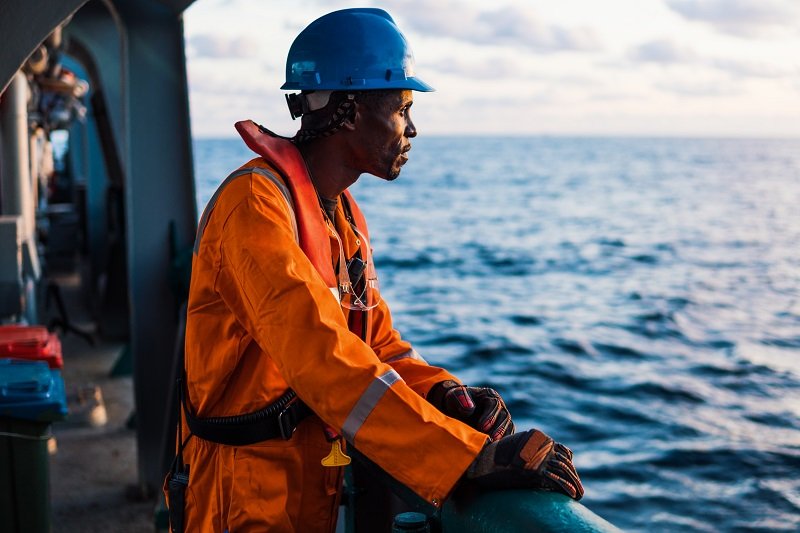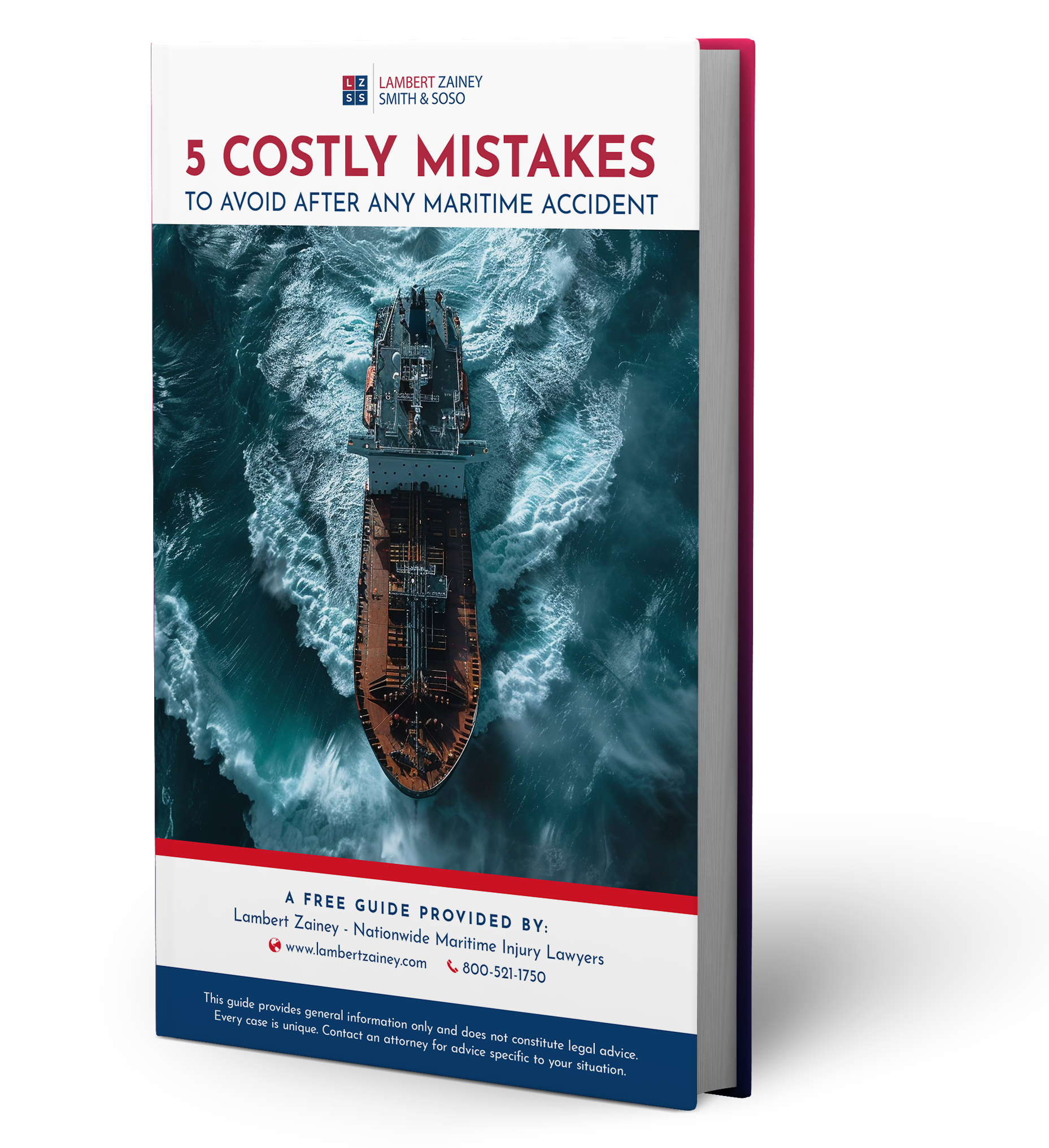Maritime work has always been risky. Bodily injuries, hypothermia and drowning are just a few of the dangers maritime workers must deal with. However, physical dangers aren’t the only hazards seamen face. What about their mental health?
It seems maritime workers face serious risks there, too. More than a quarter of seafarers exhibit signs of depression, according to a recent study.
Maritime workers can spend months, having no contact with friends or family, facing some of the harshest working conditions to be found in any job. How do these stresses impact the mental health of seamen and other maritime workers?

The startling results of a study of more than 1,000 seafarers, conducted by the international maritime charity Sailors’ Society and Yale University, revealed that some 26% of those interviewed said they had felt “down, depressed or hopeless” on several occasions during a two-week period.
So why are seafarers more likely to suffer from mental health issues than those working on land? Here are some reasons listed in the study:
Isolation/Lack of Communication with the Outside World
Maritime workers can be away from home for several weeks or even months. Often, they have only limited access to the Internet, so they are unable to speak with loved ones or take advantage of social media platforms. This lack of communication can lead to feelings of loneliness and isolation.
Physical Demands and Fatigue
Work shifts onboard an ocean-going vessel or deep water platform are long; the work is hard, and the workplace environment can be less than ideal. In many cases, the vessel or platform is understaffed, causing more stress. Fatigue is a real problem for maritime workers that can negatively effects both their physical and mental health.
Drug and Alcohol Abuse
Unfortunately, instead of seeking help or reaching out to their fellow crew members, many maritime workers choose to deal with their feelings of depression by abusing drugs and alcohol. Drug and alcohol abuse at sea can lead to disaster – people are still talking about the Exxon Valdez incident, almost 50 years later.
Bullying and Harassment
In a similar study, 50 percent of the responders say they have experienced bullying, harassment or discrimination while at sea. This type of behavior can have a serious impact on the emotional health of a ship’s crew.
The Cost of Poor Mental Health Among Maritime Workers
When decreased motivation and increased absenteeism among workers is followed by a drop in productivity that starts to affect the bottom line, employers take notice.
Currently, efforts are being made to increase the number of support services and guidance resources available to maritime workers. Many shipping lines are beginning to provide their employees with access to remote healthcare in an effort to diagnose and treat any mental health problems in their early stages.
Get Our FREE Guide to Protect Your Claim
What you do after an accident is critical. Insurance companies will try to get you to make mistakes that can hurt your claim. Our free guide can help you avoid these traps.
Download our complimentary guide: “5 Costly Mistakes to Avoid After Any Maritime Accident” to arm yourself with the knowledge you need to protect your rights.
Get Help from Louisiana Maritime Attorneys
The offshore injury attorneys at Lambert Zainey have been protecting the rights of seamen and other maritime workers for more than 40 years. If you are a maritime worker who suffered an on-the-job injury, contact Lambert Zainey today to schedule a free consultation with one of our experienced maritime injury attorneys.
Maritime work has always been risky. Bodily injuries, hypothermia and drowning are just a few of the dangers maritime workers must deal with. However, physical dangers aren’t the only hazards seamen face. What about their mental health?
It seems maritime workers face serious risks there, too. More than a quarter of seafarers exhibit signs of depression, according to a recent study.
Maritime workers can spend months, having no contact with friends or family, facing some of the harshest working conditions to be found in any job. How do these stresses impact the mental health of seamen and other maritime workers?

The startling results of a study of more than 1,000 seafarers, conducted by the international maritime charity Sailors’ Society and Yale University, revealed that some 26% of those interviewed said they had felt “down, depressed or hopeless” on several occasions during a two-week period.
So why are seafarers more likely to suffer from mental health issues than those working on land? Here are some reasons listed in the study:
Isolation/Lack of Communication with the Outside World
Maritime workers can be away from home for several weeks or even months. Often, they have only limited access to the Internet, so they are unable to speak with loved ones or take advantage of social media platforms. This lack of communication can lead to feelings of loneliness and isolation.
Physical Demands and Fatigue
Work shifts onboard an ocean-going vessel or deep water platform are long; the work is hard, and the workplace environment can be less than ideal. In many cases, the vessel or platform is understaffed, causing more stress. Fatigue is a real problem for maritime workers that can negatively effects both their physical and mental health.
Drug and Alcohol Abuse
Unfortunately, instead of seeking help or reaching out to their fellow crew members, many maritime workers choose to deal with their feelings of depression by abusing drugs and alcohol. Drug and alcohol abuse at sea can lead to disaster – people are still talking about the Exxon Valdez incident, almost 50 years later.
Bullying and Harassment
In a similar study, 50 percent of the responders say they have experienced bullying, harassment or discrimination while at sea. This type of behavior can have a serious impact on the emotional health of a ship’s crew.
The Cost of Poor Mental Health Among Maritime Workers
When decreased motivation and increased absenteeism among workers is followed by a drop in productivity that starts to affect the bottom line, employers take notice.
Currently, efforts are being made to increase the number of support services and guidance resources available to maritime workers. Many shipping lines are beginning to provide their employees with access to remote healthcare in an effort to diagnose and treat any mental health problems in their early stages.
Get Our FREE Guide to Protect Your Claim
What you do after an accident is critical. Insurance companies will try to get you to make mistakes that can hurt your claim. Our free guide can help you avoid these traps.
Download our complimentary guide: “5 Costly Mistakes to Avoid After Any Maritime Accident” to arm yourself with the knowledge you need to protect your rights.
Get Help from Louisiana Maritime Attorneys
The offshore injury attorneys at Lambert Zainey have been protecting the rights of seamen and other maritime workers for more than 40 years. If you are a maritime worker who suffered an on-the-job injury, contact Lambert Zainey today to schedule a free consultation with one of our experienced maritime injury attorneys.









